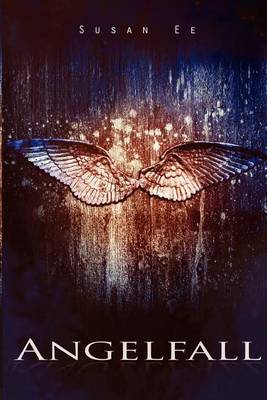Reviewed by nannah on
But speaking of the apocalypse itself, that's one big problem I had with Angelfall. There's never a reason given as to why it happens. I get that this book is the first of a trilogy and that the angels themselves don't know why it's happening, but as a reader it's hard to accept that the book can just end without giving some sort of explanation as to why it began in the first place. It also weakened what conclusion it had, as it couldn't really close anything regarding the apocalypse plot because it didn't have a reason for opening it (especially seeing the angels couldn't really care less about the why and the most our protag, Penryn, seemed to give this whole matter was a passing couple of thoughts).
The writing really wasn't spectacular, either. I just really couldn't get past how emotionally empty and telling the prose was. It just felt like breathing shallowly. There was even a chapter where she just used the words "Art Deco" about twenty times to describe everything in the room. Not to mention I can't even count the number of times that Penryn had to stop the scene in order to marvel at the "Olympic" beauty of Raffe, the fallen angel. His perfect body, velvety skin, firm chest, or whatever else she spewed out during those moments. The writing had some truly horrific moments, too, like that kiss. Ogh, that kiss. "My body melts into his and I'm hyperaware of the hard muscles of his chest against my breasts, and the warm grip of his hands around my waist and shoulders, the wet sliding of his mouth on mine." Goodness gravy, please no.
I also had some problems with the sexist themes going on in the book. Firstly, Raffe goes on about the Nephilim, but only mentions angels with the Daughters of Man, and mentions that the wives of the angels received worse punishment than the Nephilim themselves. Later, to get into the aerie, Penryn must put on a small red dress and some makeup (and I'm treated with a lovely ounce of slut-shaming, thank you, Ee). Why? Oh, because the angels like to take in (only the most) beautiful human women to wear on their arms as they party. I also learn that there's angel women--but human/angel interaction seems to only exist when it's to demean human women.
Characters here were nothing special. It might have had something to do with the lack of emotion with the writing, but I couldn't connect with these characters. They seemed two-dimensional, more like bursts of sarcastic dialogue than actual people. Or, in a few instances, just personality quirks instead of being characters, like the Weasley twins--oops, I mean, Tweedledee and Tweedledum (really), two red-headed twins.
Now, I'll give this book one thing: it certainly was addicting. I kept reading it and kept going. I can't even really say why. Things kept moving (though where it was going, I couldn't say). Things kept happening, even if there wasn't a clear reason. It did make for good action.
I don't even know if I want to talk about the ending, though. It was gruesome, yes, and horrifying, but I didn't connect with it. What reason did it have to be so absolutely grotesque? There was no build up. Also, why didn't Raffe hear Penryn's heartbeat or breathing and know she was alive when he was bringing her back to her family at the end? Angels have excellent hearing, as was said many times throughout the book. She was right against his chest at the time. Am I to believe he couldn't hear that? Along the same line, am I supposed to believe that not once did Penryn wonder if Raffe was somehow short for Raphael? Not once?
In any case, maybe this novel just wasn't for me.
Reading updates
- Started reading
- 3 December, 2013: Finished reading
- 3 December, 2013: Reviewed
